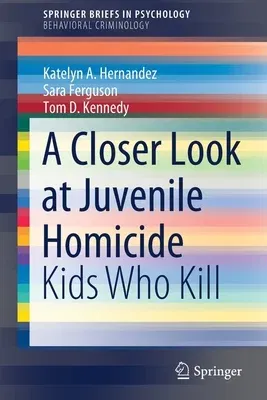Katelyn A Hernandez
(Author)A Closer Look at Juvenile Homicide: Kids Who Kill (2020)Paperback - 2020, 1 March 2020

Qty
1
Turbo
Ships in 2 - 3 days
In Stock
Free Delivery
Cash on Delivery
15 Days
Free Returns
Secure Checkout

Part of Series
Springerbriefs in Psychology
Part of Series
Springerbriefs in Behavioral Criminology
Print Length
74 pages
Language
English
Publisher
Springer
Date Published
1 Mar 2020
ISBN-10
3030381676
ISBN-13
9783030381677
Description
Product Details
Book Edition:
2020
Book Format:
Paperback
Country of Origin:
NL
Date Published:
1 March 2020
Dimensions:
23.39 x
15.6 x
0.46 cm
ISBN-10:
3030381676
ISBN-13:
9783030381677
Language:
English
Location:
Cham
Pages:
74
Publisher:
Weight:
136.08 gm